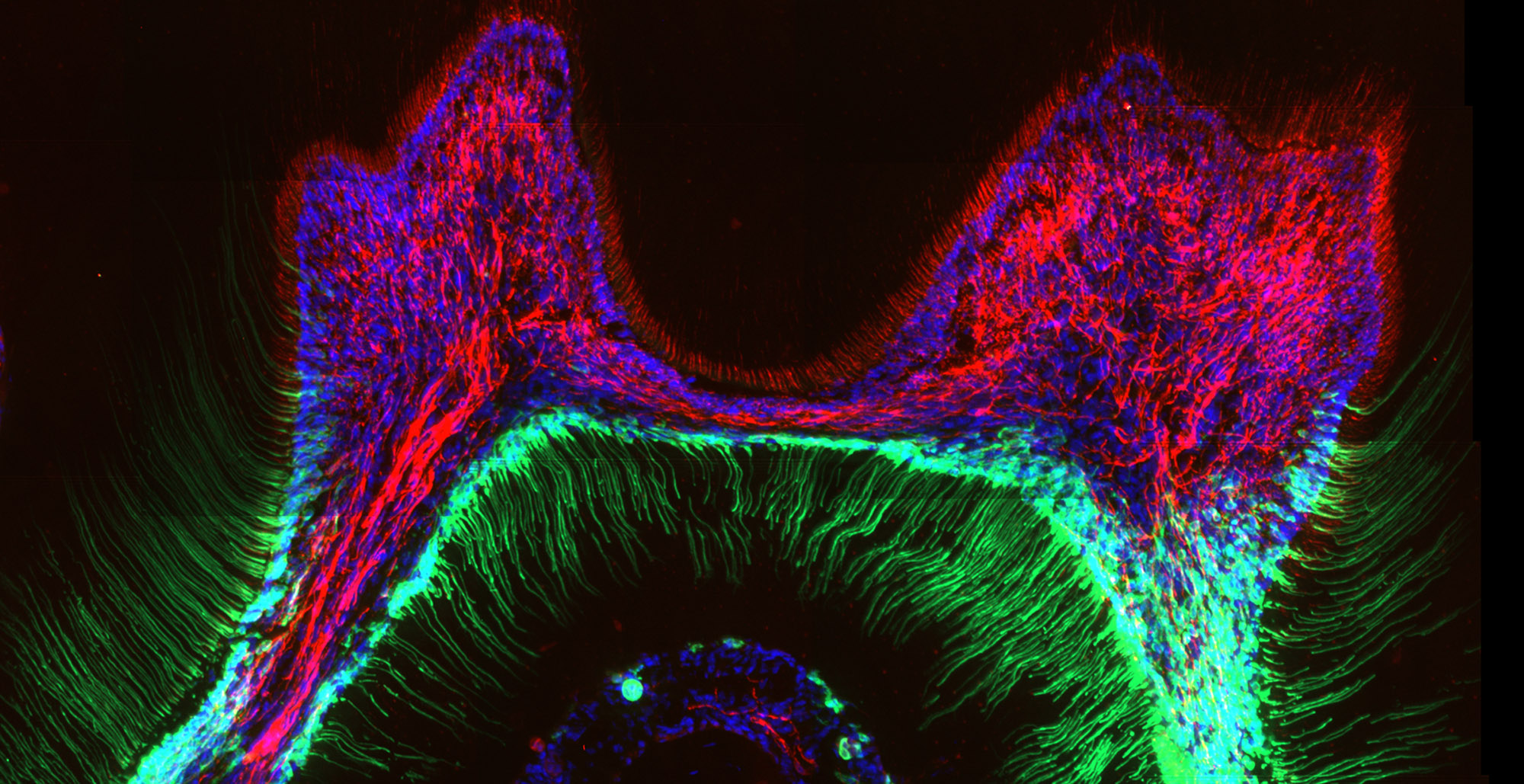Clove oil alleviates cold-induced toothache by blocking the TRPC5 ion channel
Touching a cold drink can be a suffering for us when we have tooth decay. An international team of scientists led by Prof. Katharina Zimmermann (Friedrich - Alexander University Erlangen - Nuremberg in Germany), together with scientists from the Institute of Physiology of the Czech Academy of Sciences in Prague, found out how teeth detect cold and determined the molecular basis of cold-induced dental pain. In both mice and humans, dental cells called odontoblasts contain special cold sensors, the TRPC5 ion channels, which transmit information about a painful stimulus to the nervous system. The study also offers an explanation for why clove oil, which has been used for centuries in dentistry, can alleviate toothache. Clove oil contains a chemical eugenol that blocks the TRPC5 protein and prevents it from activating nerves. Video

Odontoblasts containing the ion channel TRPC5 (green) tightly pack the area between the pulp and the dentin in a mouse’s molar. The cells’ long-haired extensions fill the thin canals in dentin that extend towards the enamel. Sensory nerves are indicated in red (bIII-tubulin). Cell nuclei are stained with Hoechst 33258. (Credit: L. Bernal et al./Science Advances 2021)
Bernal, L. - Sotelo-Hitschfeld, P. - König, Ch. - Sinica, Viktor - Wyatt, A. - Winter, Z. - Hein, A. - Touška, Filip - Reinhardt, S. - Tragl, A. - Kusuda, R. - Wartenberg, P. - Sclaroff, A. - Pfeifer, J. D. -Ectors, F. - Dahl, A. - Freichel, M. - Vlachová, Viktorie - Brauchi, S. - Roza, C. - Boehm, U. - Clapham, D. E. - Lennerz, J. K. - Zimmermann, K. Odontoblast TRPC5 channels signal cold pain in teeth. Science Advances. Roč. 7, č. 13 (2021), č. článku eabf5567. ISSN 2375-2548. IF: 13.117, rok: 2019. DOI
